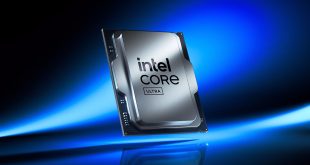Intel have announced their new Xeon E7 series with up to ten physical processing cores per chip. They are targeting AMD's Magny-Cours with hopes of moving some high density data center customers to their platform.
The Xeon's are not aimed at the consumer audience, they are aimed at the mission critical high performance computing market. They are cramming in more cores in a smaller space that has been possible before, although AMD are able to get twelve core designs into the market.
The Intel Xeon E7 range are build on the 32nm processor which keeps down manufacturing costs and size. They support 32GB memory modules, meaning that systems can have up to 2TB in a quad socket design, with up to 102GB/s memory bandwidth.
The ten core chips have HyperThreading, meaning that they appear as a 20 core design in the operating system. Quad socket systems can therefore have forty physical processing cores with eighty threads. 30MB of cache is incorporated to help maximise the performance.
Impressively Intel are claiming that the new chips offer 25 percent more processing cores with twice the memory capacity than the Xeon 7500 series but they maintain the same power demand. E7 processors also use Intel's Intelligent Power Technology which means that the integrated power gates can drop the power demand of unused cores down to 0W at idle. There are also new features such as Machine Check Architecture Recovery (MCA-R) which allows the system to ignore specific memory errors and stay stable.
To keep the cost down for less demanding requirements, they are also selling the E7-8837 which is an eight core design, but without Hyper Threading.
KitGuru says: No prices are yet confirmed but we expect them to hit e-tail shortly.
 KitGuru KitGuru.net – Tech News | Hardware News | Hardware Reviews | IOS | Mobile | Gaming | Graphics Cards
KitGuru KitGuru.net – Tech News | Hardware News | Hardware Reviews | IOS | Mobile | Gaming | Graphics Cards




AMD 12 core designs are very good in this sector, but while intel are ‘two down’ they are significantly faster and more efficient.
Hmm… so what AMD is very good. They are not good enough when compared to Intel. It is not a surprise that Intel controls nearly 100% of server market.